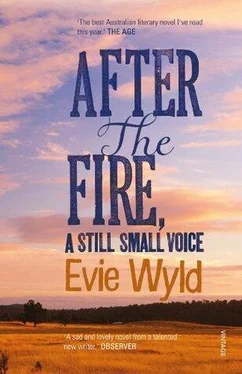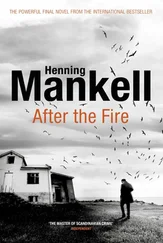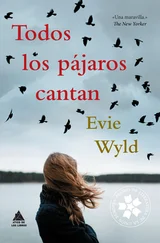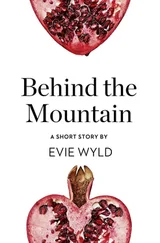There were thirty photographs, some overexposed, just dark-brown rectangles, and they all went in, then two that were not his own. The photograph, torn at the top, of the dead Cong’s wife and child. Yellow and black and grey, it smelt like repellant and old books. The girl was shoeless, but the mother wore small black plimsoles that cut just below her ankle bones. Her feet were placed in a sort of ballet style, neat and balanced, heels together toes apart. The child’s toes spread on the ground. Her hands were clenched at her sides. Then, Lena Cray with the baby inside her. A smooth, colour photograph, rounded edges that had turned white with dog-earing. The waratah dress, the small white points of her teeth. Sometimes — a trick of the pattern of her dress — you seemed to be able to see the baby moving. The sugar doll he made wore a waratah in her hair. He’d had to guess the silhouette of her bump, shaped it low on her belly like ripe fruit hanging. Her small hands supported her back, her toes turned inwards as if the balls of her feet were aching and hot. Her mouth was wide and open in a laugh. Of course, the baby was out of her now, but whenever he thought of Lena Cray it was with that bump that must have been warm and dense, that must’ve knocked the breath out of her husband when he leant to kiss her. On the dresser in the back room was Cray’s machete, its wooden birds dark with lemon oil.
He closed the orange felt album, took it to the bookshelf and slid it in. Then he drank a large glass of water and it came back up, just as clean as it went down.
He didn’t know if it was at all appropriate, but he thought of the kid and boxed two small passion-fruit tarts. Then he unboxed them, thinking that having two small portions might highlight the fact that there were two tarts and not three, that someone was missing and so was his pudding. He put in a full-sized treacle tart, took it out — treacle was over-friendly. He settled at last on a strawberry cheesecake, which was special enough to be a gift and strawberry seemed like a fruit that would be universally appreciated, a fruit that no one could accuse him of being over-personal with. He laid slices of strawberry round the edges, was careful not to make too much of the centre of the tart, so that it didn’t seem like a celebratory cake but rather one that was meant for eating. He tied the box with a red ribbon, then cut it off and found a yellow one. The machete he wrapped in a pillowcase, then in brown paper. He put no ribbon on it — it wasn’t his gift to give.
Outside the Crays’ house in Paddington he tried to settle his hands so they didn’t shake. He wouldn’t stay, not unless she wanted him to. He was sure she wouldn’t. But she might. She might want to talk about what he knew about Cray, what he had been like in those last weeks. He had prepared a speech in case she wanted to know how he’d died. He wouldn’t lie, but he wouldn’t tell everything, he wouldn’t tell how Cray had known he was going to die, had seen it coming over the tops of the trees, had died with no one touching him, just one man with a smashed knee watching it happen from across a clearing. In any case she might just ask him to go away.
The house was pale pink with a large blooming jacaranda outside and he felt happy that he’d brought the right cake. There was a French-style balcony halfway up and on it a wooden rocking chair, still and solid. He watched it. He wondered if Lena still sat in it, if she spent the long summer evenings rocking their baby against her chest, if she listened to the flying foxes in the jacaranda tree and wondered about Cray and wondered what next ?
He shrugged his shoulders, trying to loosen his shirt collar as he stood at the front door. He knocked and somewhere inside he heard a baby crying. He exhaled long and hard, breathed in through his nose, knocked again, hoped he didn’t sound too impatient. Footsteps inside. He swallowed all he could, hoping an empty mouth would help him speak. The door opened a crack and a woman, older than he’d expected, looked out, her hair in curlers and a cigarette in her mouth.
‘Mrs Cray?’
‘No. What do you want?’
‘Is Mrs Cray in?’
‘Who are you?
‘I’m a friend of her husband’s.’
The woman looked him up and down, not in a friendly way, but not either in an unfriendly way, just in a way that suggested she was very tired and wished he hadn’t come. The baby cried again. ‘Look. I’m sorry,’ she said, the howls inside distracting her. ‘Lena isn’t here. I’m her sister. Lena died.’
‘What?’
‘She put her head in the oven after Paul. I’m sorry to be the bearer — I really am, but she left a baby behind and it’s crying, so if you don’t mind?’
‘Of course not.’
He stepped back and the woman nodded and closed the door. Leon heard her footsteps getting fainter inside. He hadn’t known Cray’s first name was Paul.
As he neared the end of his track, Frank saw that something was wrong. The stove was tipped over on to its side, its legs in the air like an upturned beetle. An empty car was parked outside the shack and the front door was wide open. As he pulled up he saw the vegetable patch had been dug out, splints snapped in half, Sal’s careful chicken wire flattened.
He got out of the truck and spat on the ground. What the fuck now? What else, possibly?
He left the door to his truck open and moved quietly up the steps. Kirk, alone, warbled in a nearby tree.
‘Thanks a bunch, mate,’ he muttered.
Inside was as much of a mess as his few possessions would allow. His bed was turned on its side, the fridge door hung open, the sugar figurines were upended, arms and legs turned to dust on the floor.
His ears strained and his fists clenched at his sides. He looked around for something hefty to grab hold of, but there was nothing — the machete was missing from its stump.
A bird flew behind him and he whipped round, ready to swing.
‘I need you to come with me, mate.’
All the blood in his body dropped to his feet and he breathed out long and slow. It was Linus.
‘Jesus. What is it?’ He wanted to be able to sleep lying down for a long time.
‘I need you to come with me.’
‘Where to?’
‘Police, mate.’
‘Why? What’s happened?’
‘I’ll explain on the way, mate.’
‘Tell me now.’
‘Haydon’s kid is missing.’
Frank opened his mouth but didn’t speak. Something heavy held him on the spot, like he’d been eating sand.
‘We’ll take my car, eh?’ said Linus, bouncing down the stairs and dumping himself in the driver’s seat.
Frank joined him, but in slow motion like his bones were soft and not his own. ‘How long has she been gone?’
‘As long as you bin away.’
‘What?’
Linus kept quiet. Frank searched for something else to ask. ‘Did she run away?’
Linus looked at him, then back at the road. ‘No one’s sure of anything yet. All that’s news is that we’ve been trying to get hold of you for as long as she’s been away.’
‘What do you mean by that?’
Linus held his look in the rear-view mirror. ‘I don’t think you did it, mate. That’s why I’ve come down here. Soon as we get youse to the cops, soon as they can get some sort of alibi.’
‘Did what? You think I’ve got her?’ He blinked hard, tried to think. ‘This is stupid,’ he said softly.
‘Didn’t I just say I don’t think you did it?’ They passed by the roundabout and the boy he’d seen on that first day with the book was there at the side of the road with his back to them. ‘You’ve got to admit, though, it is a coincidence — Ian’s girl and then Sal. And you haven’t been here long.’
Читать дальше












